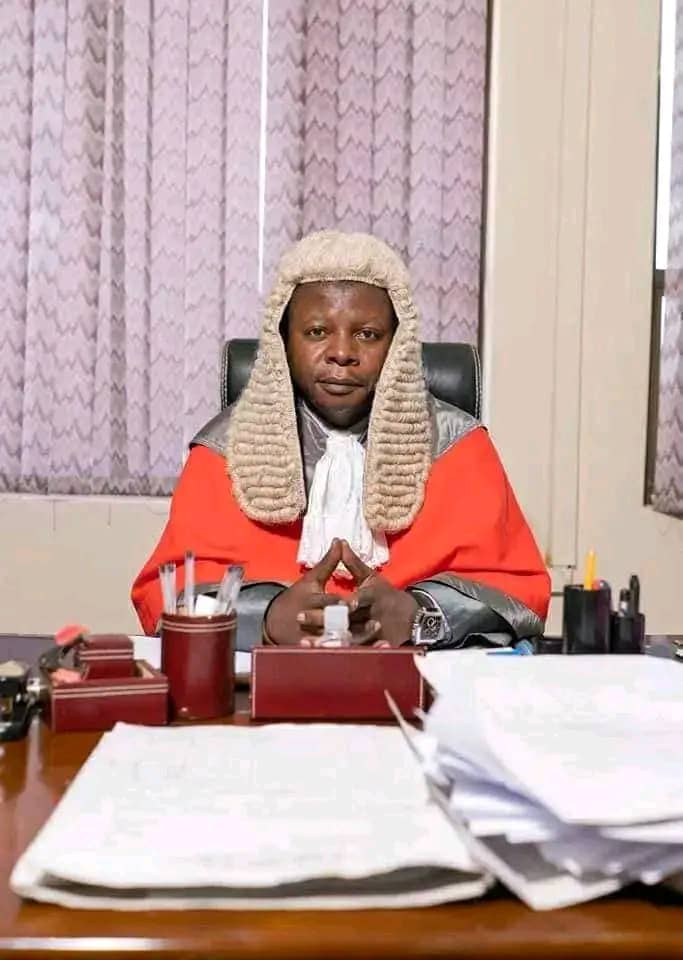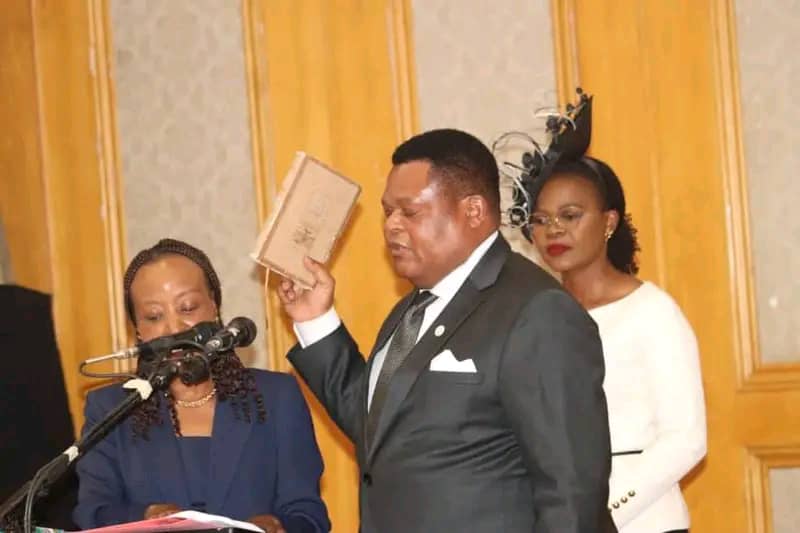By Burnett Munthali
The announcement that Parliament will institute an inquiry into Justice Ken Manda’s conduct highlights the complex relationship between the judiciary and the legislative branch in Malawi, particularly in holding judges accountable for alleged misconduct. This inquiry, led by the Legal Affairs Committee chaired by Peter Dimba, raises important questions about judicial oversight, transparency, and the balance of power in maintaining the integrity of the legal system.Lawyer Alexius Kamangila exposes corruption in Malawi’s Judiciary, calls for divine intervention
Justice Ken Manda has found himself under scrutiny for the second time, as allegations of misconduct have resurfaced. The first instance involved a controversial case regarding Gam Filling Station, where Parliament had initially considered impeaching him. However, that decision was rescinded, and the matter was deferred to the Judiciary, which opted to transfer Manda to Blantyre instead of pursuing any formal disciplinary action. This lack of resolution has become a point of contention, as many viewed it as an inadequate response to serious allegationsAlexius Kamangila: A call for judicial accountability in Malawi.
The current inquiry is rooted in a fresh controversy surrounding the Salima Sugar Company. However, Peter Dimba’s remarks that others with unreported complaints against Manda will also be invited to testify suggest that Parliament aims to take a broader approach, possibly uncovering systemic issues within the judiciary related to oversight and discipline.Lawyer and social commentator Alexius Kamangila announces postponed meeting on facebook
The case underscores a critical tension in democratic governance: how to ensure judicial independence while also holding judges accountable for misconduct. The Legal Affairs Committee’s intervention through its constitutional oversight mandate demonstrates that Parliament is willing to act when the judicial system appears unable or unwilling to police itself.Breaking News: Justice Ken Manda secures injunction against Lawyer Alexious Kamangila’s social media posts
Judicial independence is a cornerstone of any democracy, and judges must be free from political interference when making decisions. However, when allegations of misconduct arise, especially on more than one occasion, it is essential that a transparent mechanism is in place to investigate and act where necessary. If judges are perceived to be above accountability, public confidence in the legal system can be severely eroded. This inquiry aims to balance these concerns by exercising legislative oversight without overstepping into judicial independence.Breaking News: “Please Sue” – Lawyer Alexious Kamangila responds to Justice Kenani Manda’s K250 million demand
One of the most critical aspects of this case is Parliament’s previous failure to take decisive action during the Gam Filling Station controversy. Despite serious allegations, Justice Manda was merely transferred rather than being held accountable. This inaction may have set a dangerous precedent, allowing potential judicial misconduct to be dealt with internally, outside public scrutiny. The upcoming inquiry presents an opportunity for Parliament to correct that narrative by pursuing a thorough investigation.Malawi Law Society Distances Itself from Attorney Alexious Kamangila
Dimba’s emphasis that all parties involved will be subpoenaed, along with anyone who has unreported complaints, indicates a broader effort to address grievances that may have been overlooked in the past. By widening the scope of the inquiry, Parliament appears committed to getting to the root of the matter and ensuring no further misconduct goes unnoticed.Lawyer and social commentator Alexius Kamangila announces postponed meeting on facebook
This inquiry is significant not only for Justice Manda but for the judiciary as a whole. Should the inquiry uncover more substantial evidence of misconduct, it may lead to reforms in how judicial accountability is managed in Malawi. The current system, where judges can be transferred without formal reprimand, may need to be overhauled to include more robust mechanisms for dealing with allegations of impropriety. This would strengthen public trust in the judiciary, a critical institution in upholding the rule of law.
ConclusionLawyer Alexius Kamangila exposes “Brotherhood” among judges in exclusive Zodiak Interview
Parliament’s decision to launch an inquiry into Justice Manda’s conduct reflects a necessary move to safeguard judicial integrity and address growing concerns about the lack of accountability. While the judiciary must remain independent, it must also be held to high standards of conduct. This inquiry, if handled transparently and objectively, could lead to significant outcomes that reinforce both the credibility of Parliament’s oversight role and the trustworthiness of Malawi’s judicial system. The focus will be on whether the findings prompt real change or simply serve as a symbolic gesture in a system that has so far struggled with internal discipline.




